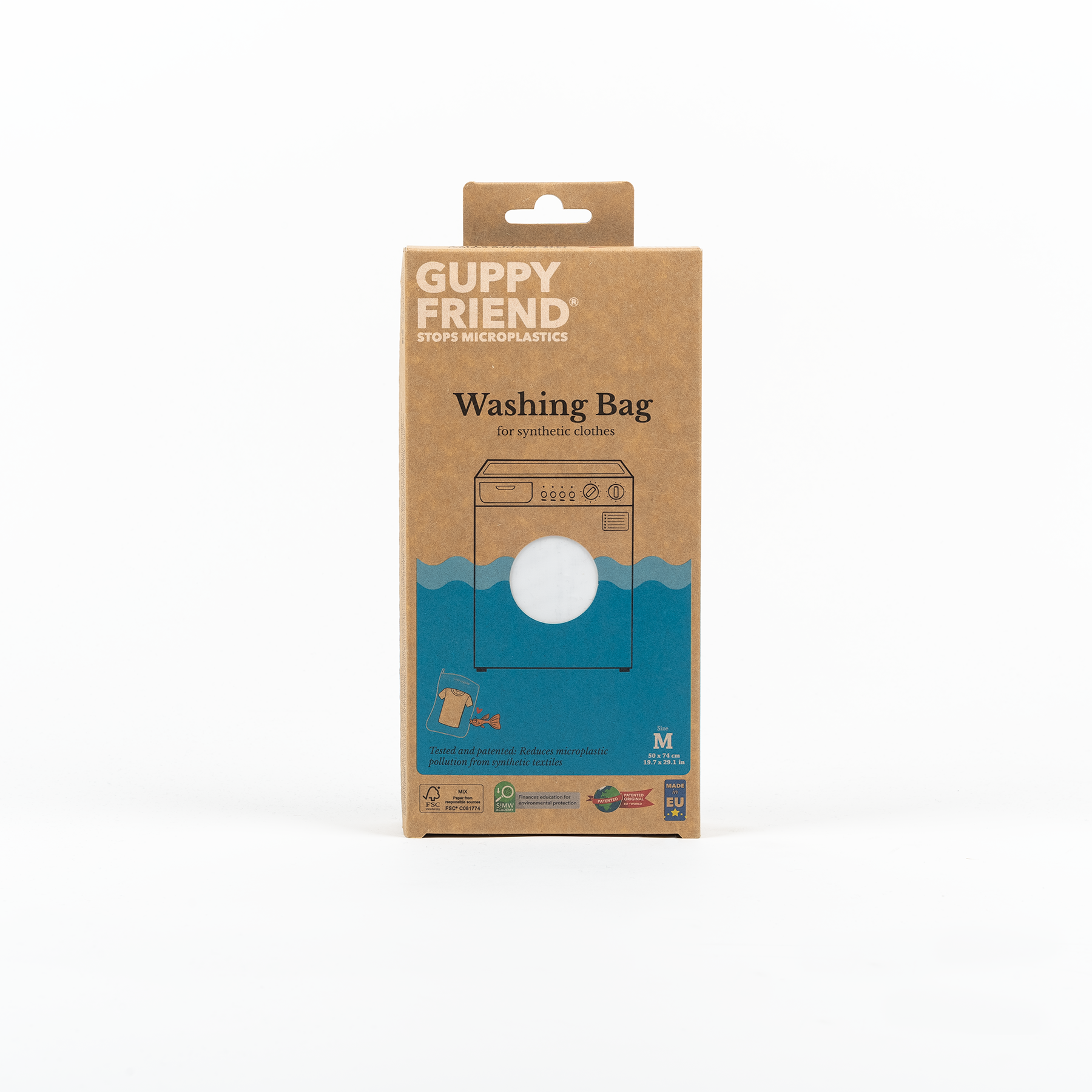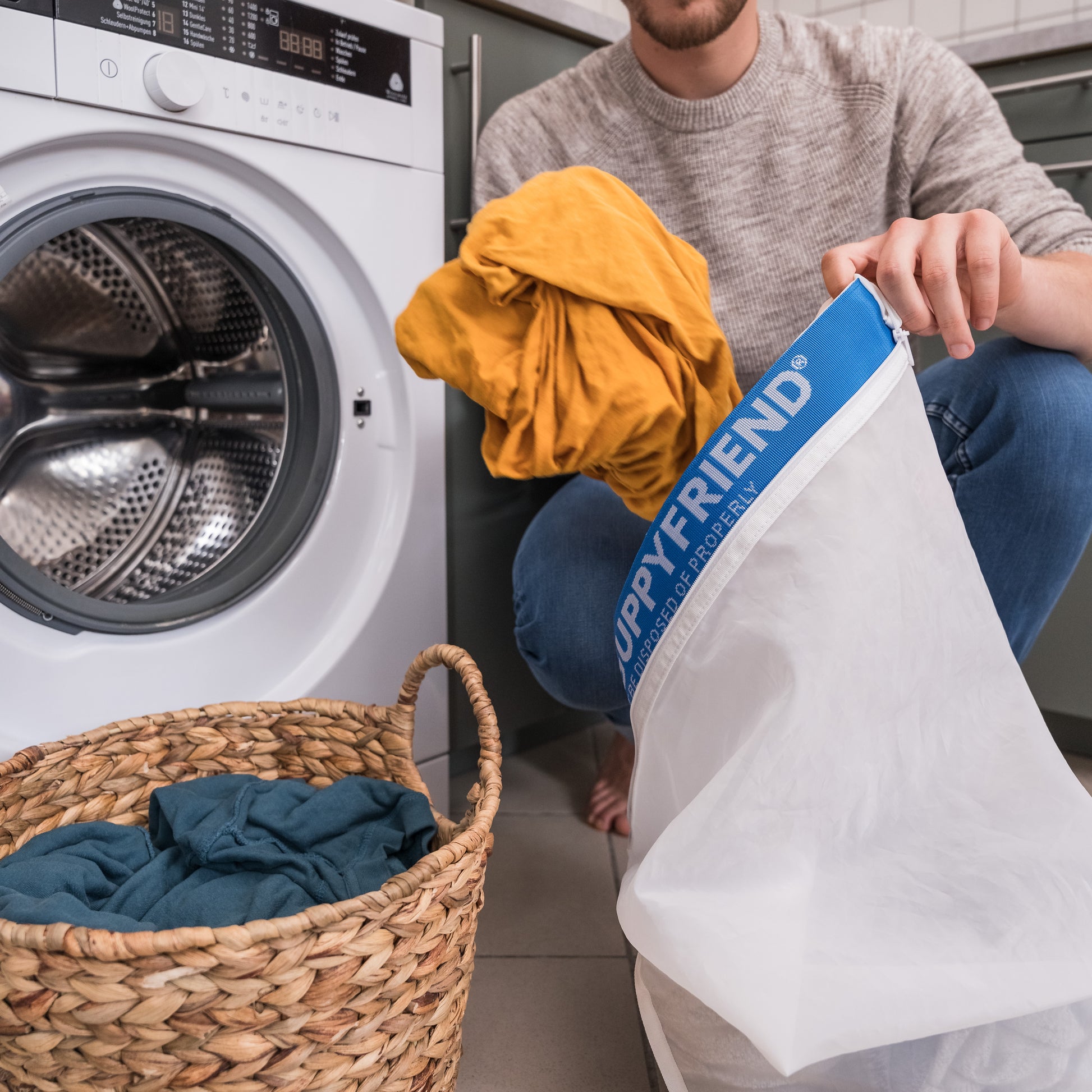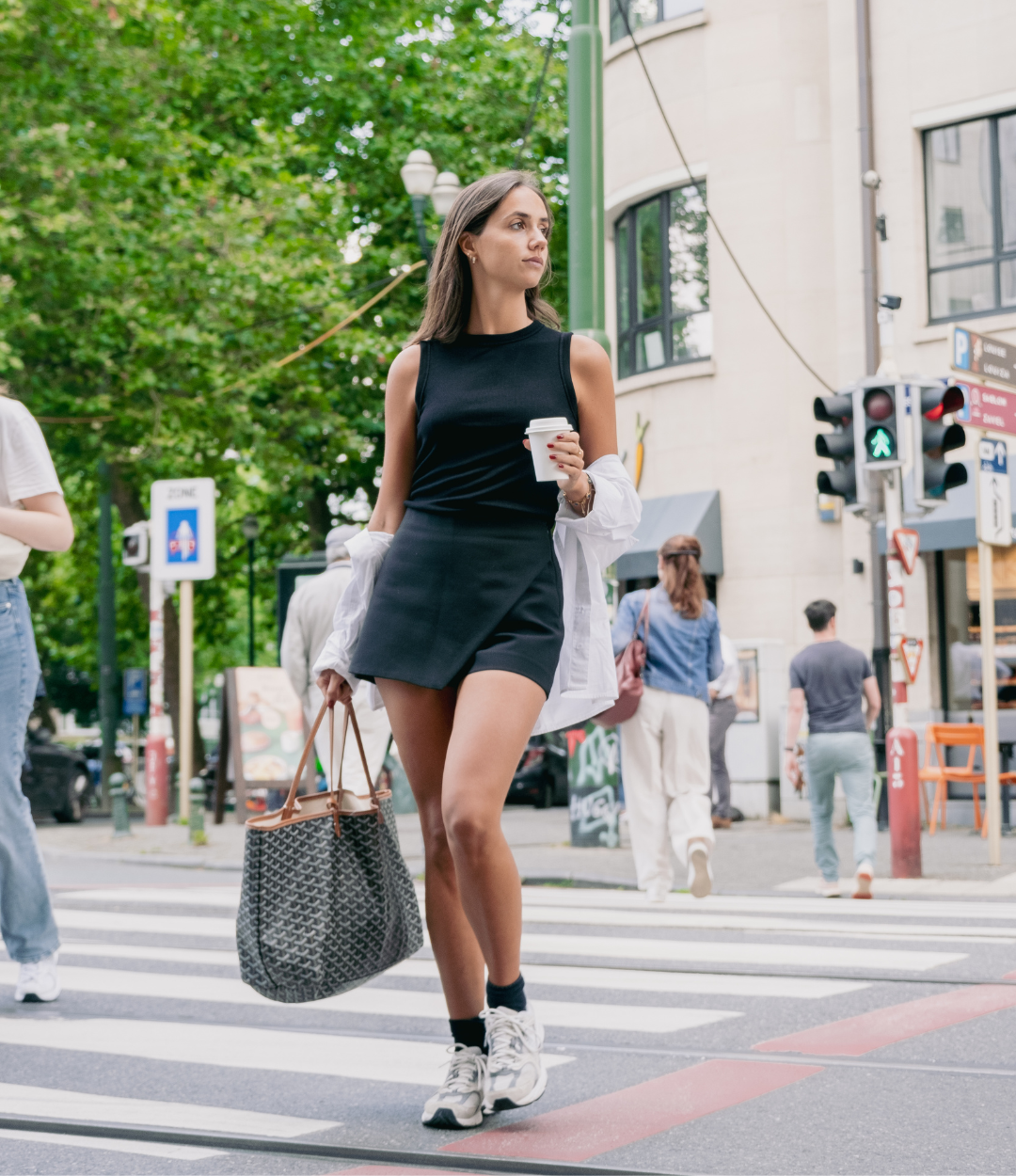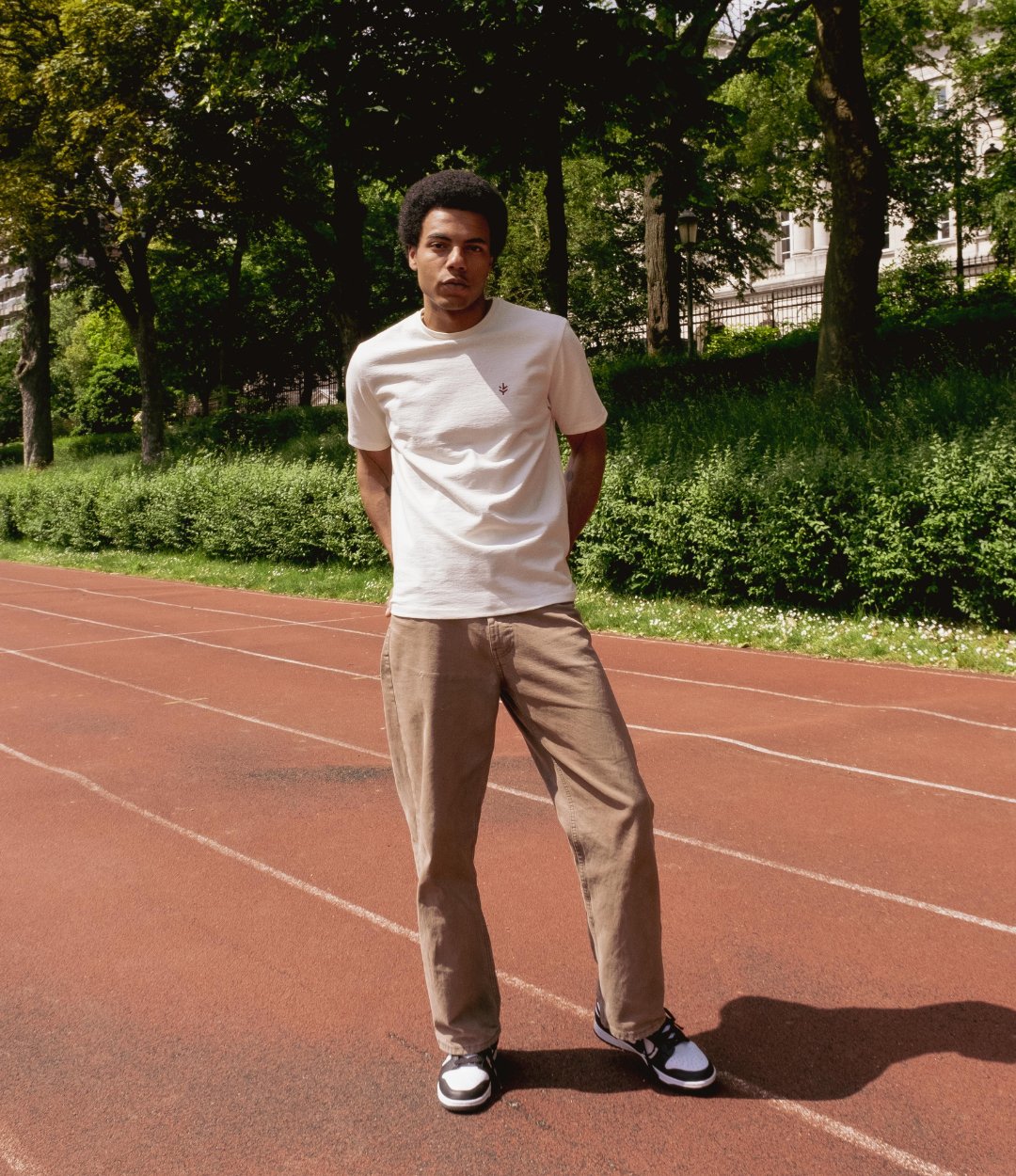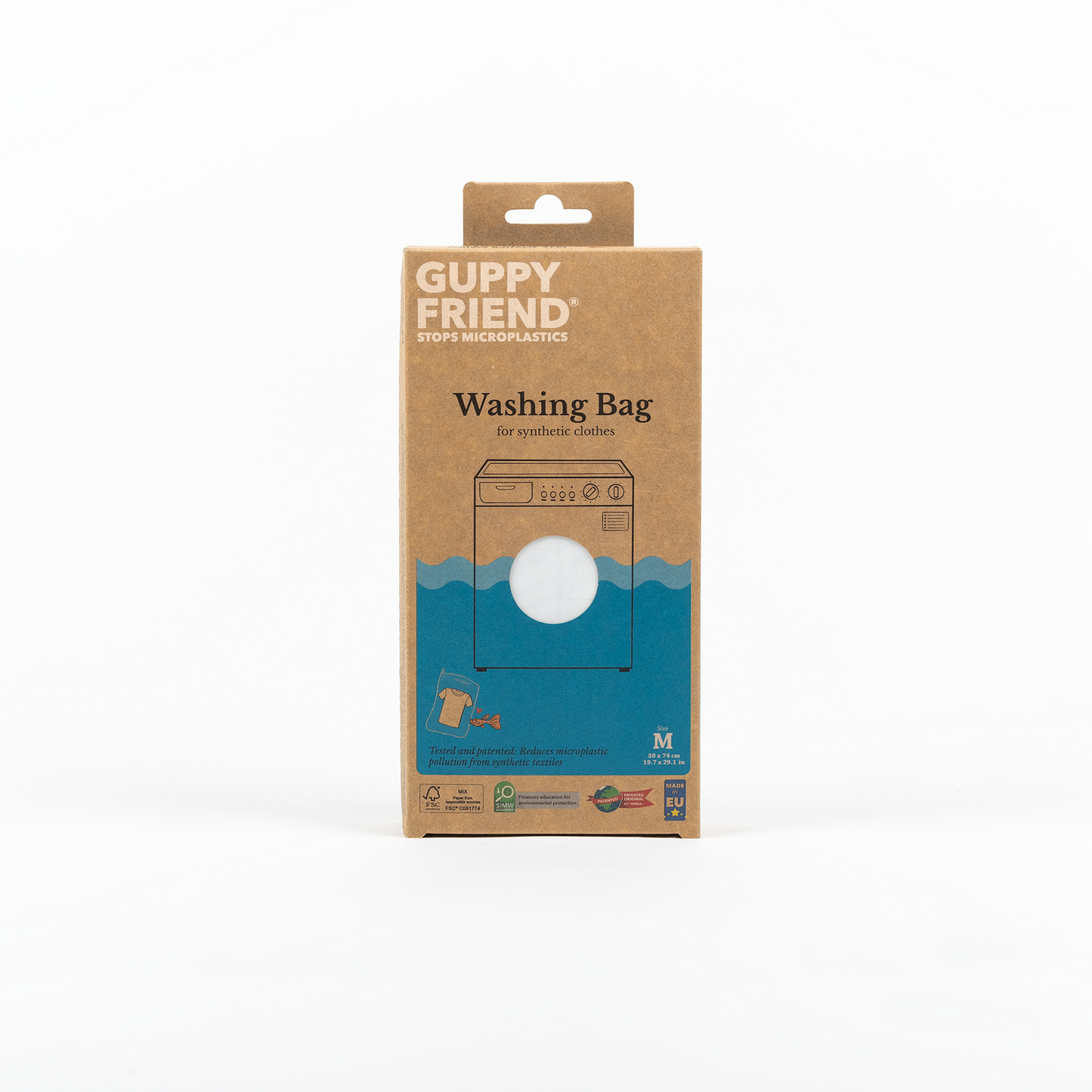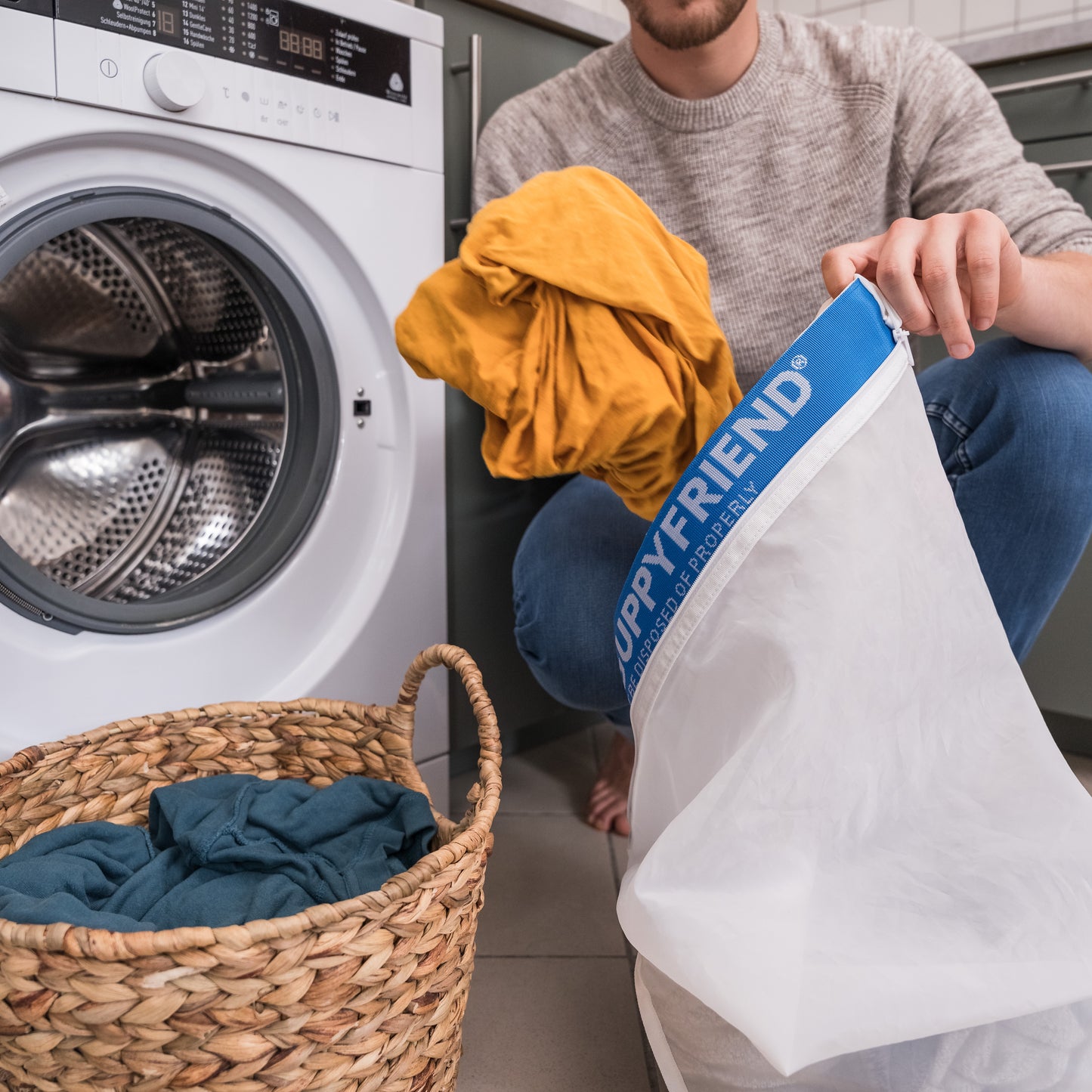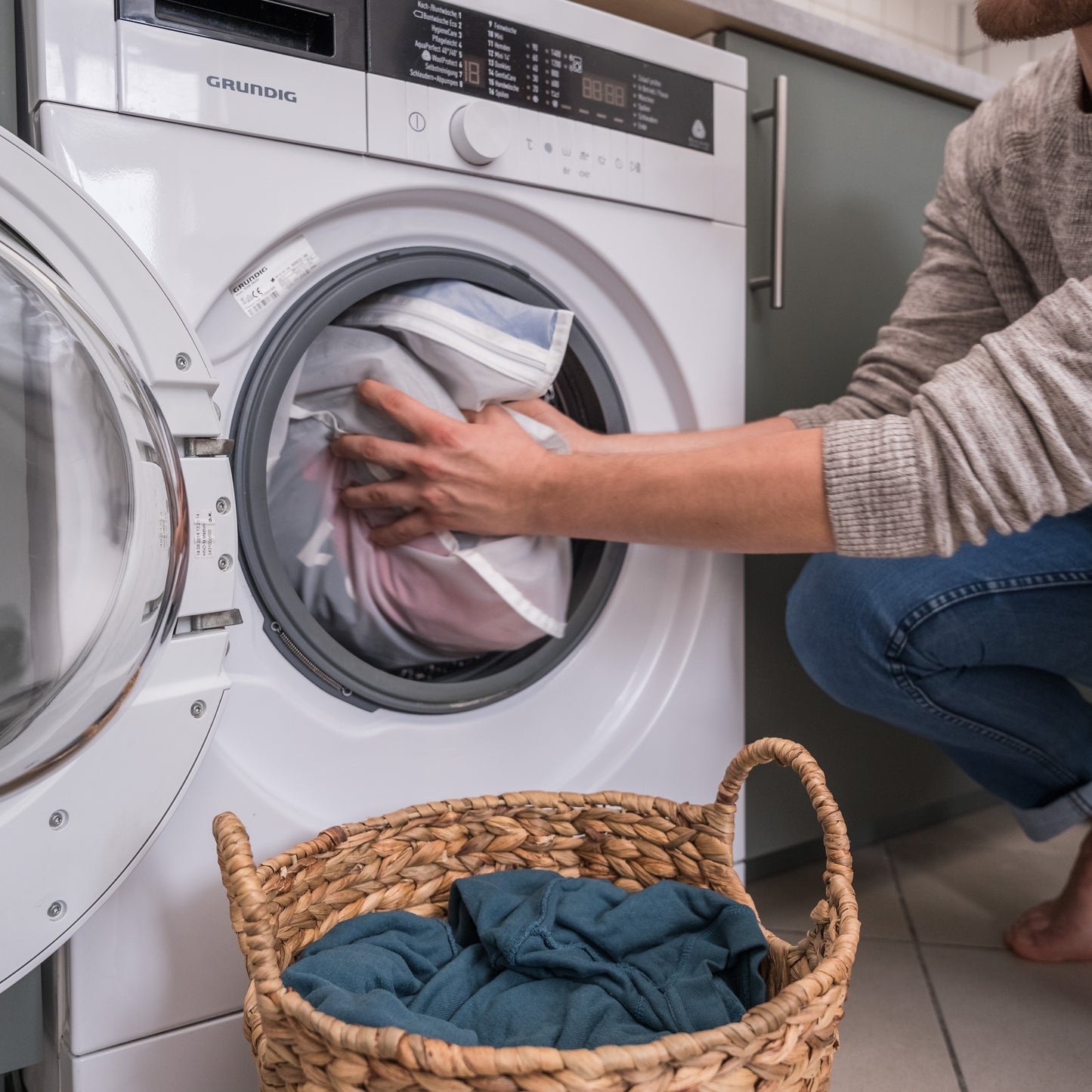GUPPYFRIEND bag - Stop microplastics
GUPPYFRIEND bag - Stop microplastics
Synthetic clothing + washing machine = plastic discharge into the oceans
Much like a wall crumbles when you run your hand over it, tiny pieces of plastic fibers separate from your garment during washing and end up polluting marine and terrestrial ecosystems . And unfortunately, the recycled polyester used in Lucid clothing also releases plastic microfibers.
Do you want to do things differently and reduce the impact of your clothes? It's possible thanks to this washing bag that protects your clothes and the planet. Thanks to very fine mesh, it reduces the erosion of fibers and limits the leakage of microfibers into nature. The fish thank you.
Estimated delivery: 7 working days.
En stock
Microplastics?
Microplastics?
When you wash your clothes, plastic particles with a diameter of less than 5 mm are released into nature, poisoning aquatic wildlife and potentially humans . It is estimated that a volume equivalent to 50 billion plastic bottles is released into the ocean annually (20 to 35% of the total volume of plastics present in the ocean). Imagine the moment when the volume of plastic exceeds the volume of fish, fish sticks will have a polyester aftertaste.
'' How is this a problem? '' you're thinking. The ingestion of microplastics by aquatic fauna causes various problems such as gastrointestinal blockages leading to death from starvation, deterioration of the immune system or even endocrine disruption . The consequences of the presence of microplastics in the human body through the ingestion of marine foods still need longer-term studies for precise conclusions. But in any case, you will rarely hear a doctor recommend plastic in your daily diet.
Sources:
- A new textiles economy: Redesigning fashion's future , Ellen MacArthur foundation (2017)
- Solutions to microplastic pollution – Removal of microplastics from wastewater effluent with advanced wastewater treatment technologies , Talvitie, J. et al. (2017)
- Microplastic pollution from textiles: a literature review, Henry, B., Laitala, K. and Klepp, IG (2018)
How is the bag used?
How is the bag used?
The GUPPYFRIEND bag is a protective cocoon for clothes, reducing the abrasion of fibers against the drum of the washing machine while preventing microparticles from escaping into nature.
The principle is super simple:
1) Fill the bag 2/3 full of your clothes containing synthetic fibers (polyester, nylon, elastane, etc.) and close it. The bag is large (50x70cm), you can already put a lot of clothes in it).
2) Add other clothes to be washed that do not contain synthetic fibers (100% cotton, 100% linen, etc.) to the machine, the bag does not block the washing of other clothes.
3) Wash following your usual program, preferably at 30-40°C.
4) Take damp clothes out of the bag after washing.
5) Collect any microfibers released from the inside corners of the bag (opening side) and throw them into the appropriate plastic bin. The volume to recover varies from one wash to another, don't be disappointed if sometimes you don't find anything!
6) Back to step 1) for all your next laundry, the bag can be reused endlessly (and beyond).
Do not put the bag in the dryer, do not iron it, do not put sharp objects in it.
Where is the bag made?
Where is the bag made?
In Europe obviously ! Italian textile, manufactured in Portugal and Poland.
Are you sure it works?
Are you sure it works?
A bit of my nephew! The bag was tested for 3 years by research institutes, universities, representatives of the textile industry and brands (to name a few: German Textile Research Institute, DTNW; Fraunhofer Institut UMSICHT; University of California in Santa Barbara) in order to determine if GUPPYFRIEND could really present an additional solution to the problem of microplastics.
In short, the bag has been shown to reduce fiber shedding during washing in 2 ways:
1) By reducing the volume of fibers detached from the garment (therefore preserving the integrity of the fibers): reduction of 79-86% on average.
2) By retaining the fibers inside the bag: between 90 and 100% of the fibers are retained.
So yes, the GUPPYFRIEND bag allows us to go further in the process of preserving ecosystems and reducing the impact of our activities. If we add to this more eco-design during the production of clothing and the addition of filters on washing machines/sewage treatment plants, we can allow ourselves to think that we are moving in the right direction!
We made you a little homemade video to clearly explain how the GUPPYFRIEND bag allows you to change the situation

No more plastic soup
By 2050, there could be more plastics than fish in the ocean.
With the GUPPYFRIEND washing bag, you avoid participating in this disaster by putting your plastics in the right bin.

